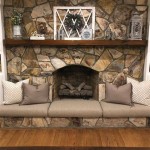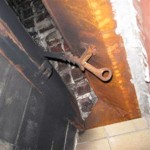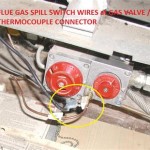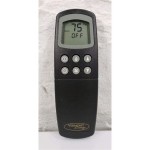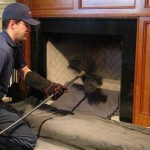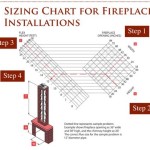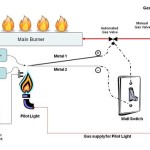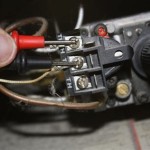DIY Wood Burning Fireplace Blower: Enhance Your Fire's Efficiency and Comfort
A wood-burning fireplace can be a beautiful and cozy focal point in a home, providing warmth and a sense of rustic charm. However, without proper airflow, much of the heat generated by the fire can escape up the chimney, leaving your room feeling cold and inefficient. A fireplace blower can significantly improve the heat distribution and efficiency of your fireplace, making it a more enjoyable and cost-effective source of heat. While commercially available blowers are readily available, building your own can be a rewarding and cost-effective DIY project.
Understanding Fireplace Blowers
Fireplace blowers are electrically powered fans that circulate warm air from the fireplace into the room. They typically sit on the hearth of the fireplace and draw in cool air from the room, passing it over the hot surfaces of the firebox and then releasing the warmed air back into the space. This process helps to create a more even and comfortable temperature throughout the room, while also reducing the amount of heat lost up the chimney.
There are two main types of fireplace blowers:
- Variable-speed blowers offer adjustable settings for controlling the airflow and heat output. They are often preferred for their flexibility and ability to adapt to different room temperatures and fireplace conditions.
- Constant-speed blowers operate at a fixed speed, providing a consistent flow of warm air. These are typically more affordable and easier to install, but may not offer the same level of customization as variable-speed blowers.
DIY Fireplace Blower Components
To build your own fireplace blower, you will need the following components:
- A motor (typically a 12V DC motor, available at electronics retailers or online)
- A fan blade (choose a size compatible with your motor and the desired airflow)
- A power supply (12V DC adapter, suitable for the motor's power requirements)
- A heat-resistant enclosure (metal or ceramic, to protect the motor and fan from the heat of the fireplace)
- A power switch (to control the blower's operation)
- Wires and connectors (for connecting the components)
- Fasteners and mounting materials (appropriate for the enclosure and your fireplace)
- Optional: Temperature sensor and control circuitry (for automatic blower activation based on fireplace temperature)
Building Your DIY Fireplace Blower
Once you have gathered all the necessary components, you can begin building your fireplace blower. This process involves assembling the components within the enclosure, ensuring proper wiring and connections, and mounting the blower safely in the fireplace.
Here's a general outline of the steps involved:
- Prepare the enclosure: Clean and prepare the enclosure, ensuring it is well-ventilated and free of any obstructions. Mount the motor and fan blade securely within the enclosure, ensuring proper alignment and clearances.
- Connect the components: Connect the motor to the power supply using the appropriate wires and connectors. Install the power switch and any additional circuitry, such as a temperature sensor and control system, following a wiring diagram or schematic. Ensure all connections are secure and insulated to prevent short circuits and electrical hazards.
- Test the blower: Before installing the blower in the fireplace, test it outside the fireplace to ensure it operates properly and functions as intended. Check for any unusual noises, vibrations, or excessive heat generated by the motor or fan.
- Install the blower: Carefully mount the blower within the fireplace, ensuring it is positioned safely and securely. Avoid placing it too close to the firebox to prevent overheating or damage to the blower.
- Test and adjust: Once installed, test the blower and observe its performance. Adjust the fan speed or other settings as needed to optimize its airflow and heat distribution.
Remember to consult and follow all relevant safety instructions, building codes, and electrical regulations when working with electrical components and building your DIY fireplace blower.
Building a DIY fireplace blower can offer a rewarding and cost-effective way to improve the efficiency and comfort of your fireplace. With careful planning, proper components, and a little bit of effort, you can create a customized device that will keep your home warm and cozy throughout the winter months.

Fireplace Efficiency Blowers And Why You Should Have One

Homemade Fireplace Blower Fan

Noisy Gas Fireplace Blower Here S How To Replace It Diy

Why Should I Get A Fireplace Blower For My Masonry

Spitfire Tube Fireplace Heaters Heater Blower Wood Burning

A Frame Cabin Build 4 Wood Stove Blower Install

Efficiency Of Fireplace Blowers And Fans New Fireplaces Trends Design Ideas Кирпичный камин Теплообменник Дизайн камина

A Homemade Wood Stove Fan

3 Blade Mini Fireplace Fan Furnace Air Blower For Wood Log Burner Eco Friendly Heat Powered Stove China Home Appliance Made In Com

How To Replace Your Rsf Fireplace Blower Fan
Related Posts

